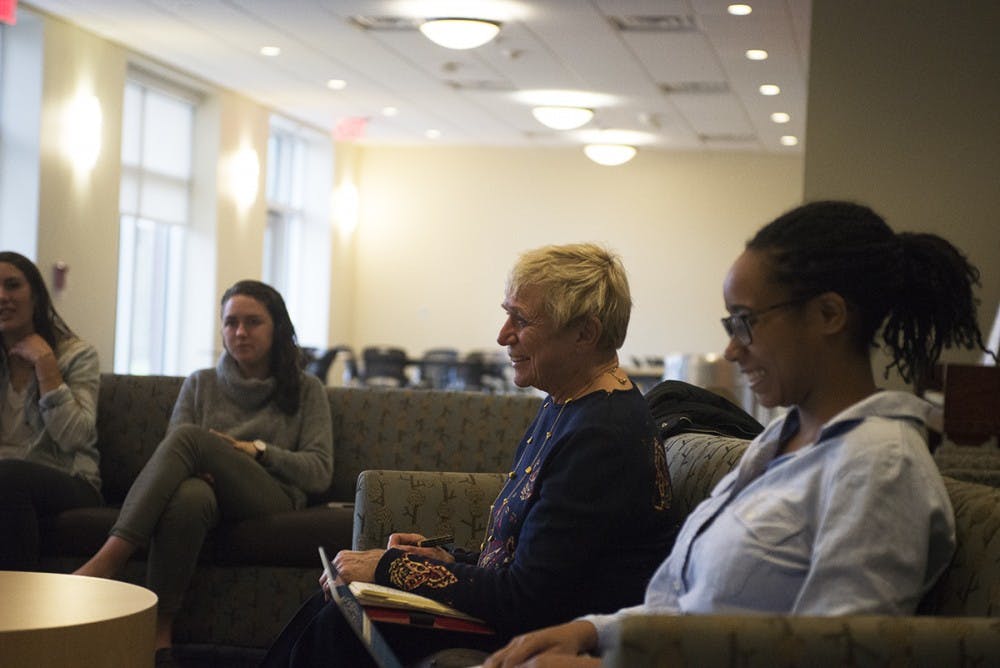The presidential search committee hosted three town hall-style meetings in first-year dorms Balz-Dobie, Watson-Webb and Lile-Maupin Monday night to discuss what students want to see in the University’s next president and to get opinions on student life more generally.
University President Teresa Sullivan announced in January that she will step down from her position when her contract expires in 2018. A special committee was formed in February to conduct a search for Sullivan’s successor and recommend a candidate for the Board of Visitors to hire.
Monday’s meeting in the Balz-Dobie dorm consisted of casual conversation with a small group of 10 students, most of whom were first-years, and a couple members from the committee, who asked open-ended questions regarding student life.
Barbara Fried, a member of the Board of Visitors and a search committee member, said this was an opportunity to speak in an informal setting with different students — first-years and upperclassmen — about how they feel.
“We wanted to get the opinions of students when they felt comfortable about talking,” Fried said. “A lot of people don’t like to get up in a big meeting, and a lot of times, you may see the same people in big meetings.”
The first part of the town hall consisted of discussing specific qualities the students were looking for in the next president. Several of the students said they hoped the next president would be more visible and accessible to the students, citing Dean of Students Allen Groves as a comparable example of someone who demonstrates these qualities.
However, much of the town hall was spent talking about students’ general observations of their experiences at the University. Some of the issues discussed included the requirement for first-year students to buy meal plans, the quality of the food at dining halls and the usefulness of the first- and second-year advising programs.
Apart from these, most of the students’ concerns revolved around the expanding size of the University.
“It sounds like a lot of the issues you guys are talking about have to do with scale, basically. So, your classes are too full and your dorms, that are being built to house more students, are too far away,” said Aryn Frazier, a search committee member and a fourth-year College student. “But, you generally like the other aspects of a large university.”
First-year College student Rohit Musti shared that he likes the University's environment in which he can choose who he's talking to when he walks to class.
“I think one of the best things about U.Va. is the fact that if I’m walking from my dorm to my class and I want to say hi to somebody, I can say hi to them but if I want to avoid somebody I can do that too without crossing paths with them,” Musti said. “And, that’s kind of nice being at a larger university.”
However, Musti went on to say it can feel difficult to navigate the task of choosing classes and said he was in large prerequisite “weed out” classes as a first-year.
“I think if we adjusted the scale of faculty to the scale of students, that would solve a ton of problems,” Musti said. “I heard that the Board was debating making the University even larger and I think the issue with that becomes to what extent can you make a large university without compromising the standards of academic excellence.”
In January, the Board approved a plan to enroll an additional 100 in-state students for the upcoming academic year.
The search committee will take the feedback they receive from town hall meetings and consider the feedback while looking for the next president.







